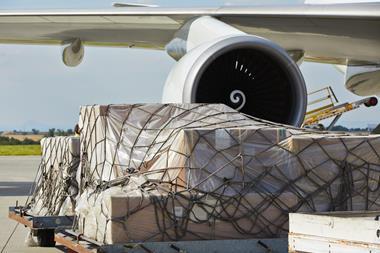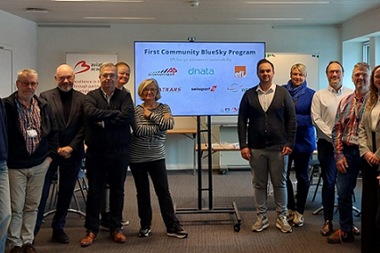To paraphrase former US defense secretary Donald Rumsfeld: “There are known knowns, there are known unknowns…but there are also unknown unknowns…things we don't know we don't know.”
Regulators looking at advanced data filing for air cargo shipments have reached a similar conclusion.
At last week’s meeting in Geneva of the ICAO and World Customs Organization (WCO) Joint Working Group on Advance Cargo it was decided to take a short contemplative break from the complicated task of developing a high level framework for countries who want to create advance data regimes for airfreight shipments.
Doug Brittin, secretary general of The International Air Cargo Association (TIACA), who was present at the meeting, explained that the architects of a potential framework for pre-loading advance cargo information (PLACI) have decided to step back, for two months until the end of March, to test further the systems.
“We have gotten to the point where we keep finding more things that we don't know, that haven't been fully resolved and tested, and then things that we do know. The further you get into it, the more you realise exactly what you don't know.
“It is almost like kicking over an ant-hill. Everything has consequences.”
Brittin added: “So we all decided that we needed to take a recess and put together a much more focused effort, and we have a pretty lengthy laundry list of those things we don't know, that need more testing.
“We are going to sit down with the pilot project entities and work through testing and developing scenarios and then to share the results that will hopefully lead firstly to a resolution of these outstanding issues.
“That is essential before these things become fully operational, even within the pilot regimes, and then to develop a framework which says this is what you need to consider and how to look at it.
“We are not giving a prescription but are providing a fully laid out road-map with the potholes and side streets that you need to avoid.”
In the meantime, the European Union (EU) will this summer introduce its Union Customs Code (UCC) but this will not be fully implemented until 2020 when it is likely to reflect the findings of the current ICAO and WCO pilot project.
Even though the US programme on advance filing has been in test phase for five years and analysed 300m shipments, the vast majority of these have been in the express community, where Brittin said that it is "a bit easier" to have door to door visibility of data from the shipper to the consignee.
He continued: “When you consider the conventional mode, with a forwarder and ground handler involved, moving shipments back and forth and moving data in and among those elements, then trying to get the same level of visibility is very difficult.
“Those are the kind of things we are getting into now from an operational standpoint.”
While the US, EU and Canada are well down the path on advance data filing, their requirements are not directly aligned, which is “physically impossible” said Brittin, adding: “From an industry perspective, the next best thing is for them to be as closely harmonised as possible. What we don't want to happen is that anybody else considering a similar thing in the future will just start it from scratch.”
And if the regulators are struggling, then the air cargo industry still has to play catch-up in filing data electronically, said the TIACA boss.
“Another concern is that as an industry we are not the most robust when it comes to being in the e-world and doing things electronically. We are still in a heavily structured paper environment.
“That is going to pose a challenge, particularly for the forwarding community who haven’t moved into the electronic environment, so that they can share data in advance.”
But even more importantly, warned Brittin, a fuller adoption of electronic data interchange will raise broader concerns on cyber security.
“If you have these unique one off systems transmitting data to different places at different times, and if they have not looked at the overall implications of securing data, it can open up opportunities for people to sneak in around the edges and potentially to disrupt the supply chain.
“It is a big issue and we will spend more time figuring out what's best for the industry and how we can help avoid that problem.”
Brittin said in summary: “We all agree that a risk-based approach to security is important and can be effective, but it should be done on a common, harmonised global platform to the greatest degree possible.
“The need is to crawl and not to walk in the development of this process, because our ultimate goal is that the solution cannot be expensive and complicated which harms the flow of commerce in the air cargo industry.
“We also need to beware unintended consequences, such as the issue of cyber security which could open portals to disruption. That is not just focused on the advanced data issue but overall, as we tie things together.”










